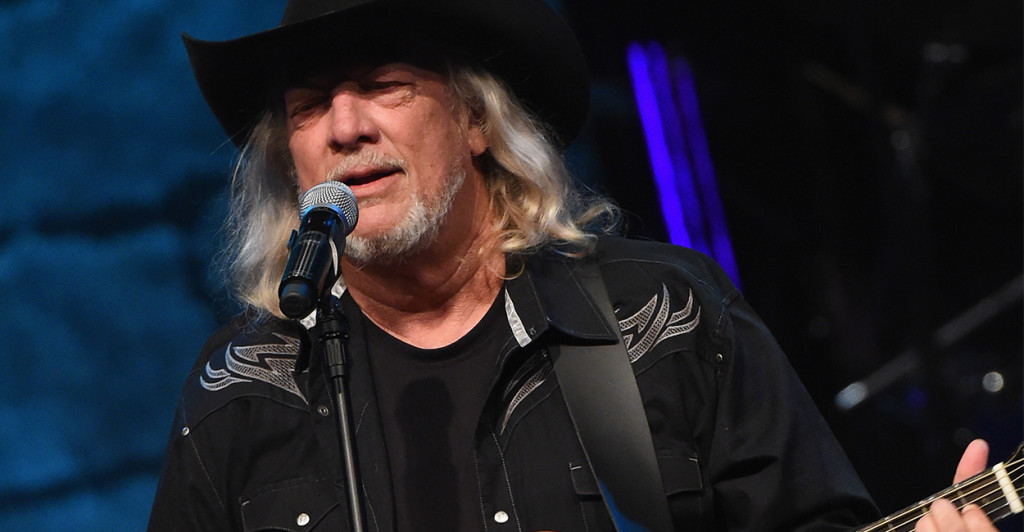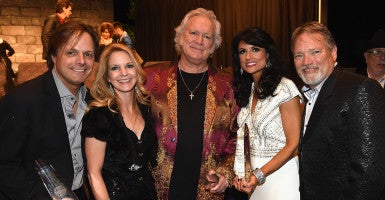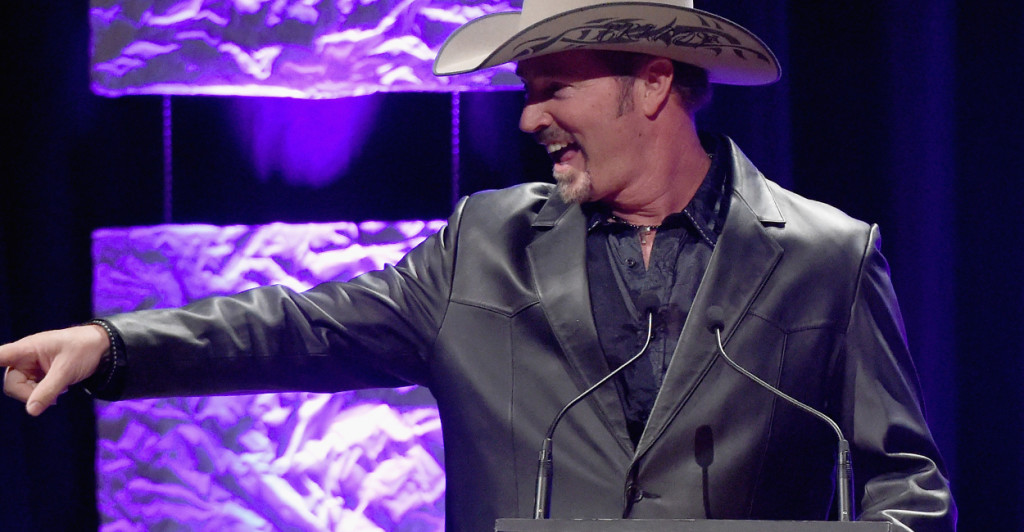NASHVILLE, Tenn.—This past August, during an acceptance speech at the MTV Video Music Awards, Kanye West announced his plan to run for president of the United States in 2020.
The admission, widely reported by media outlets, was perhaps not entirely shocking in 2015, when awards shows frequently resemble either popularity contests or spectacles. (As the Los Angeles Times wrote in May, referencing the Billboard Music Awards specifically, “What’s the point again?”)
But amid this climate of awards mania, a celebration championing a clear point of view has emerged in Nashville, Tennessee: the Inspirational Country Music Awards.
Last week, on Thursday, artists, managers, songwriters, and ministers—many wearing some combination of bedazzled fabric, denim, and leather cowboy boots—packed into Cornerstone, a large church building just outside the city, to celebrate Inspirational Country Music.
The ICM genre, officially created in 1990, was launched to “get positive messages across” through song, according to Jason Higgins, executive director of the Inspirational Country Music Association.
“Everything we focus on and do revolves around our trademark slogan, which is faith, family, and country,” Higgins says. “Our goal is to inspire people and uplift people through inspirational and country music.”

Country music legend John Anderson performs at the 2015 ICM Awards. (Photo: Rick Diamond/Getty Images for ICM)
“A Big, Big Part of Country Music”
The Inspirational Country Music Awards, tiny when compared to the Grammy’s or even the more mainstream Country Music Awards, were first held in 1991 after Higgin’s father Gene founded the Christian Country Music Association. In addition to hosting the awards show, the group also councils artists and management companies on how to promote and expose faith-based songs to a Christian audience.
Given each fall in Music City, the awards celebrate the personal and professional accomplishments of inspirational country music performers, several of whom are also ordained ministers. Throughout the show, award presentations are peppered with faith or family-based anecdotes; a particularly emotional awards presentation from this year’s show touched upon the passing of minister Russ Murphy’s wife.
Award winners are determined by the 501(c)3 nonprofit’s members, and much like other well-known awards organizations, you must join in order to cast a vote.
“The members select the nominees,” Higgins says, “But one thing we’ve always prided ourselves on is that we’re not here to judge an artist or an entertainer. We tend to lean more towards the power of a song, as opposed to whether an entertainer’s belief system perfectly lines up with what our organization’s core beliefs are.”
Over the years, that outlook has led to awards show performances by mainstream artists like Lonestar and Josh Turner. Artists including Carrie Underwood, who have released religious songs (2005’s “Jesus Take the Wheel” and 2014’s “Something in the Water” both garnered Grammy wins) but are not necessarily known for their faith, frequently take home awards.
This year, John Anderson, the country music legend who recently released his 23rd album, performed his new song “Don’t Forget to Thank the Lord.” Anderson’s previous no. 1 hits include songs like “Straight Tequila Night” and “Swingin’.”
“Gospel music has always been a big, big part of country music, since the very beginning,” Anderson says. “But this awards show’s much different than all the other ones I’ve been to. I have a lot of gospel songs and inspirational songs too that not a lot of people have heard, and maybe this will be an outlet for them.”
For Anderson, inspirational country music also hearkens back to the time of what he calls “real country music,” as opposed to the “boy band” country of today, as it’s often known.
“It’s still a tough business and anybody that can do well, hats off to them in my opinion,” Anderson reasons. “On the other hand, when I moved to Nashville, it was a whole different kind of country music. When I listen for enjoyment, I still lean back to that kind of music.”
The “Fastest-Growing Genre”
According to Higgins, the awards are meant to be a way to introduce new fans to Christian or inspirational country, perhaps especially as mainstream country grows more contemporary.
“As a Christian, being able to listen to my favorite style of music and have positive lyrics and positive messages, that’s what I enjoy,” Higgins says, hinting at increasing gap between young and old country fans. “When my kids are in the car, or I’m at home, I never have to worry about anything, and it’s all inspirational and uplifting.”
At the same time, country music’s boom—in 2014, the New York Times reported it had replaced Top 40 as America’s most popular music format–has undoubtedly helped both Christian music and the city of Nashville as a whole.
“I thought I had recreated the wheel when I started putting Christian lyrics to country music, because in Central Florida, it wasn’t heard of then,” says Tommy Brandt, an ordained minister and country music singer who has had 14 number one songs on the Inspirational Country Music charts.
Brandt, who tours the country year-round both preaching and performing, started recording inspirational music in 2003 and is one of the genre’s largest names.
“Today, Christian country music is sitting right on the fringe of country music, and that’s the fastest-growing genre of music,” Brandt says. “Inspirational country music is waiting to just explode. And not that we want to take over country music, but I believe there is going to be a place even more so in the future for Christian country. People are going to be seeking hope and promise and inspirational for an ugly world.”
Despite the gap between Christian and contemporary country, Higgins says his organization maintains a friendly working relationship with the Country Music Association.
He also notes that, thanks in large part to Internet streaming, inspirational country is in fact gaining a worldwide audience, especially in places like Australia and even Japan. The Inspirational Country Music Association has also spoken with large networks—including the Hallmark Channel—about finding a mainstream television presence for the awards show.
For now, Higgins and artists like Brandt seem content staying on the fringe of pop culture, winning over fans one at a time and waiting for the boom Brandt says will come.
“If you go to a racetrack where there’s a bunch of people drinking beer and partying, you can’t just throw the Bible at them and expect them to receive it,” Brandt says. “But all of my songs come from what God has done for me, so I try to relate to other people’s situations and life experiences and write accordingly.”
































